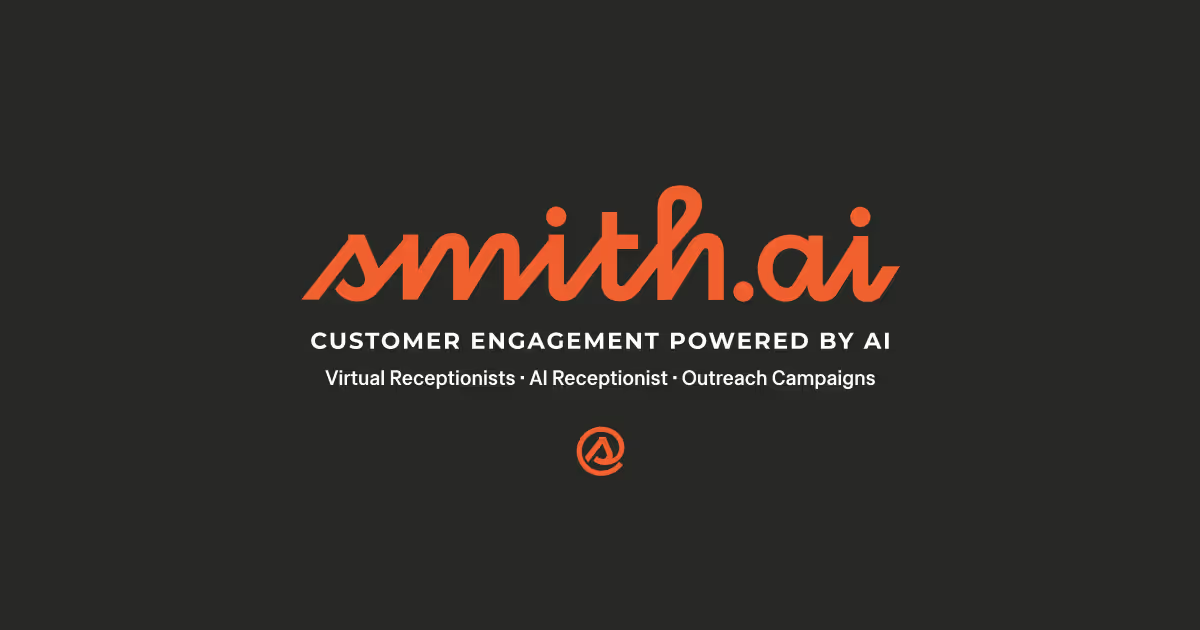The Human Touch in AI Customer Service: Creating the Perfect Balance
The Human Touch in AI Customer Service: Creating the Perfect Balance

The race to perfect customer service has a new frontier: artificial intelligence. Finding the sweet spot between AI efficiency and human empathy determines which companies thrive at AI customer service and which fade away.
Young consumers are already voting with their actions. Phone calls to human agents plummeted from 12% to just 7% among those under 25 between 2021-2023, while 30% of customers over 40 still crave the human connection.
This generational divide creates a challenging balancing act. While AI delivers 24/7 service that helps 63% of agents serve customers more effectively, Gartner predicts automation will handle only one in ten interactions by 2026, leaving most conversations requiring a human touch.
The consequences are clear: with 65% of customers abandoning brands after poor service experiences and $3.7 trillion in global sales at risk, the companies that master AI customer service won't just win customers, they'll keep them.
Understanding AI Customer Service
AI customer service represents the integration of artificial intelligence technologies into customer support operations. It includes AI-powered chatbots, virtual assistants, intelligent systems that analyze customer data, automated solutions that route inquiries and provide self-service options, and AI-based call centers.
These AI agents enhance service by continuously monitoring their environment, making data-driven decisions, learning from past interactions, resolving problems, and forecasting trends to improve service quality.
For small and medium-sized businesses, AI customer service is quickly becoming a necessity. Eighty percent of customers believe a brand's experience is just as important as its products or services. Your customers aren't comparing you just to direct competitors; they're comparing you to service giants like Amazon that set high standards.
As a small business owner, utilizing AI-based call centers and other AI customer service solutions, you can provide 24/7 support without increasing headcount, handle routine inquiries automatically, gain deeper insights into customer preferences, and deliver personalized experiences at scale. The good news is that this technology is becoming more accessible and affordable for businesses of all sizes.
Business Benefits of AI in Customer Service
AI customer service transforms operations with tangible benefits. According to Research, chatbots alone are projected to facilitate cost savings of over $8 billion annually. This automation doesn't eliminate jobs but reallocates human resources to more strategic endeavors.
The cost-saving benefits are substantial: many companies experience a reduced workload with the adoption of AI, along with noticeable decreases in operational expenses. By managing repetitive inquiries, solutions like AI answering services reduce the reliance on large human workforces.
One of AI's most valuable benefits is enabling businesses to scale their customer support operations efficiently. Solutions like AI website chat tools can handle anywhere from 100 to 10,000 customer queries with consistent performance, adapting instantly to demand fluctuations.
Beyond operational benefits, AI customer service directly improves customer experiences through customer experience automation, personalization, and responsiveness. Today's consumers expect tailored interactions, with McKinsey research showing that 71% of consumers expect personalized experiences.
This leads to noticeable improvements:
- Many businesses report better Customer Experience (CX).
- Organizations observe enhancements in Customer Satisfaction (CSAT).
- Enterprises often achieve or surpass their Key Performance Indicators, including crucial call center KPIs.
Human in the Loop: Why It Matters in AI Customer Service
While AI continues to transform customer service with impressive efficiency, the human element remains irreplaceable in delivering truly exceptional experiences.
Unlike AI systems, humans possess genuine emotional intelligence. Ask yourself this: Can your AI system truly empathize with a frustrated customer who's had multiple failed attempts to resolve an issue? A human agent can convey authentic empathy and may take additional steps to resolve the issue that AI wouldn't consider.
This emotional connection isn't just a nice-to-have. It's fundamental to building trust. Human agents can detect subtle emotional cues, adapt their communication style, and form genuine connections that foster loyalty.
While AI excels at addressing routine questions, human agents shine when confronted with complex, nuanced inquiries. Human agents bring cognitive flexibility to customer interactions. They can follow unpredictable conversation paths, make judgment calls based on incomplete information, and develop creative solutions to unique problems.
The most effective customer service operations don't choose between humans and AI. They find the optimal balance. Bank of America's virtual assistant Erica answers routine inquiries in an average of 44 seconds, handling over 2 million interactions daily.
This automation allows human agents to focus on situations where their emotional intelligence and problem-solving abilities create the most value.
Finding the Right Balance in AI Customer Service
Finding the optimal balance between AI and human agents is crucial for delivering exceptional customer experiences. "A blended AI approach where automation can help the human be more human is most ideal," says Graeme Provan, global director of business automation at Genesys. "Having artificial intelligence focus on the repetitive tasks allows the employee to concentrate on human-based skills."
When implementing this strategic balance, clearly define which responsibilities belong to AI and which to human agents. AI excels at prediction and data processing, while humans bring judgment and emotional understanding to customer interactions.
While automation brings efficiency, maintaining a human touch in automated interactions is equally important. To humanize your automated interactions, design chatbots that use natural language and personalized responses, implement sentiment analysis to detect customer frustration and trigger handoffs to human agents, and create seamless transitions between automated systems and human agents when issues become complex.
As AI transforms the customer service landscape, the integration of human empathy and AI becomes increasingly important, and human agents need proper training and empowerment to thrive in their evolving roles. Beyond technical training, empower your agents with the authority to make decisions and resolve problems on the spot.
This autonomy enables them to provide exceptional service when handling complex issues that AI transfers to them.
Types of AI Tools for Effective Customer Service

Today's AI-powered chatbots have evolved far beyond simple rule-based bots. Modern voicebots and chatbots leverage generative and conversational AI to understand complex customer queries and deliver creative, context-aware responses.
Virtual assistants take chatbot capabilities even further by integrating with various business systems to deliver highly tailored responses.
AI sentiment analysis employs natural language processing (NLP) algorithms to assess customers' opinions and emotions based on their text interactions. These sophisticated tools can identify not just positive and negative sentiments but also nuanced emotions like joy, anger, sadness, and fear.
Generative AI represents the cutting edge of AI customer service technology. AI writing assistants, leveraging models like GPT-4, help customer service teams generate content and assist in customer interactions with unprecedented sophistication.
75% of business leaders report that AI has helped improve their customer response times and deliver 24/7 assistance.
Roadmap for Implementing AI in Customer Service
Implementing AI customer service doesn't have to be overwhelming. Follow an AI implementation roadmap by starting with evaluating your current customer service processes to pinpoint areas where AI could provide substantial improvements.
- Look for repetitive tasks that consume agent time
- Common customer inquiries that could be automated
- Bottlenecks in your customer service workflow
- Pain points reported by your team and customers
Don't try to transform everything at once. Begin with limited-scale projects to assess AI's impact before wider implementation. Success with AI requires properly preparing your personnel. Invest in training programs that equip team members with the knowledge and skills needed to work alongside AI tools effectively.
You don't need to become an AI expert yourself. Consider partnering with AI specialists, working with technology consulting firms, hiring qualified AI talent, or using user-friendly AI tools designed for non-technical users.
AI implementation isn't a one-time task. Set up systems for
- Regular performance assessment
- Algorithm fine-tuning
- Collecting and incorporating feedback
- Evaluating impact on business goals
If you anticipate a high call surge due to seasonality or other forecasted trends, make sure you have enough agents on hand to handle the increase in call volume.
Measuring AI's Impact on Customer Service
To truly understand the value that AI customer service brings to customer service operations, you need to establish clear metrics and evaluation methods. Familiarizing yourself with key customer experience statistics can help guide this process. Focus on these essential metrics:
- Auto-Resolution Rate, Escalation Rate
- First Contact Resolution (FCR) Rate
- Customer Satisfaction (CSAT)
- Customer Effort Score (CES)
- Average Response Time
- Ticket Volume
- Average Sentiment Score
Beyond tracking individual metrics, evaluating the overall efficiency and return on investment of your AI implementation requires a more comprehensive approach. Compare pre-AI and post-AI performance metrics to quantify improvements. According to industry data, 61% of companies observe improvements in customer experience after implementing AI in their customer service operations.
Don't make any assumptions about what metrics matter most. When selecting which metrics to prioritize, align them with your specific objectives for AI implementation. Understanding key metrics for customer service quality is crucial in this process.
Future of AI in Customer Service
Several key customer service trends are shaping the future of AI customer service:
- Generative AI-based Training
- Advanced Conversational AI
- AI-Powered Agent Assistance
- Predictive Customer Service
- Dynamic Knowledge Management
Rather than replacing humans, AI will enhance agent capabilities through real-time scripts and workflows, with 50% of customer support experts predicting AI will work alongside humans rather than replace them.
The stakes for implementing these AI advancements are high. Currently, 65% of customers switch brands due to poor service experiences, which could lead to a projected global sales loss of $3.7 trillion by 2024.
Conclusion
Finding the perfect balance between AI technology and human interaction in AI customer service is not just a technological decision, it's a strategic business imperative. The most successful customer service strategies recognize that AI and humans have complementary strengths.
You must evaluate your unique customer base, identify where AI customer service can add the most value, possibly by reverse-engineering customer experience, and ensure that human talent is focused where it makes the greatest impact. By strategically blending both elements, you can create exceptional customer experiences that drive loyalty, reduce costs, and give your business a competitive advantage in an increasingly digital marketplace.
Ready to enhance your customer service strategy? Find out how Smith.ai can help. Schedule a consultation or reach out via email at hello@smith.ai.
Take the faster path to growth. Get Smith.ai today.
Key Areas to Explore

Your submission has been received!











.svg)



